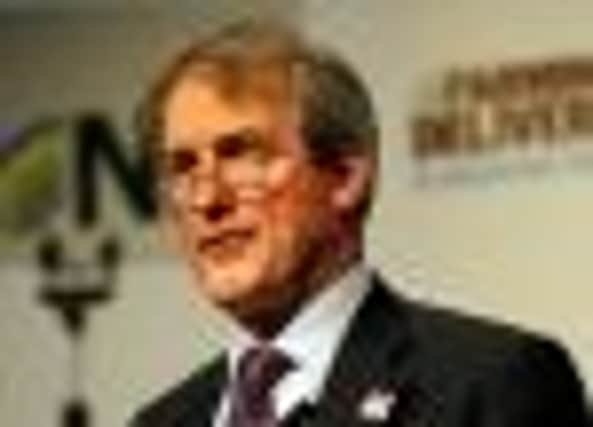Comment: Getting the minister to visit Scotland is just the first step


NFU Scotland had decided that the best method of persuading the then Westminster rural affairs secretary, Caroline Spelman, and her deputy, farm minister Jim Paice, of the unique nature and needs of Scottish farming was to invite them north to come and see it.
The cunningness – as far as it went – was a hope to divert the ministers from their intent of slashing direct subsidies to farmers. But it all came adrift six months ago when both lost their heads and their ministerial cars in a swift and unexpected Cabinet reshuffle.
Advertisement
Hide AdAdvertisement
Hide AdAfter investing time and effort into the departed, the union had to start again with the new boys – Owen Paterson as the top man at Defra, and his number two, David Heath – but it has proven much more difficult to lure this pair across the Border.
Last month, Heath did come as a late replacement for Paterson to the union’s annual meeting, but he seemed to arrive with at least one of his hands tied behind his back.
His one significant comment was that England might be prepared to trade off some of its subsidy payments that are linked to production – so-called coupled support.
However, Paterson, speaking at the English NFU annual meeting only two weeks later, refuted Heath’s comment, thus confirming widespread rumours that only Paterson is allowed to make decisions in Defra.
This is why the Scottish NFU’s invite to Paterson at the weekend is vitally important, with the union wanting the Defra man to make his first official visit to Scotland later this month.
In the words of the union, it wants to Paterson to see for himself the lie of the land and thereafter to “champion the more extreme production challenges faced in Scotland”.
He will not be the first or last politician to be dragged over the Border by Scotland’s lobby groups over the past 40 years.
Every agriculture department head since the UK joined the European Union four decades ago has travelled north and been photographed on some Scottish hillside, often in suitably bleak weather.
Advertisement
Hide AdAdvertisement
Hide AdBut since devolution it has proven much more difficult to get the UK ministers to cross the Border to see for themselves the terrain on which this country produces food.
Nick Brown did before his political career perished in the flames of the foot-and-mouth outbreak in 2001, but I cannot recall either Margaret Beckett or Hilary Benn making the trip – and if I am wrong on that, I would say that even if they came north, they made little or no impact.
Generally those in the role took the attitude that agriculture was a devolved matter and the Scots could just get on with it. But the problem is as far as the EU is concerned, the member state is the UK and the settling of a new common agricultural policy (CAP) is up to the member states.
That is why the Paterson trip has to be much more than just seeing the scenery. The union has got to impress on him the serious economic effect the wrong CAP reform package could have for Scotland – and it now has a limited timescale for such arm-twisting.
As main negotiator at the UK table in Brussels, Paterson sits in a powerful position and his influence could be seen as extremely damaging to agriculture not only in Scotland but also Wales and Northern Ireland, where large percentages of the land are also categorised as disadvantaged.
However, the UK position in Europe on future support seems only to be supported by a few other member states and Paterson’s contributions at open council meetings seem to emphasise this isolation.
But he also sits in the main seat in the internal negotiations in the UK, where a solution based on his current thinking has the potential to knock a big hole in the Scottish livestock sector and therefore in the whole of the industry and the wider rural economy.
In purely political terms, the Scottish Government is almost in a win-win situation on this issue. It will claim any benefits from a deal and it will blame London and Westminster for anything with which it disagrees.
In terms of its effect on farming, unless there is a slackening of the present hardline attitude of the UK government, the negative effects from the CAP deal could be quite dramatic.